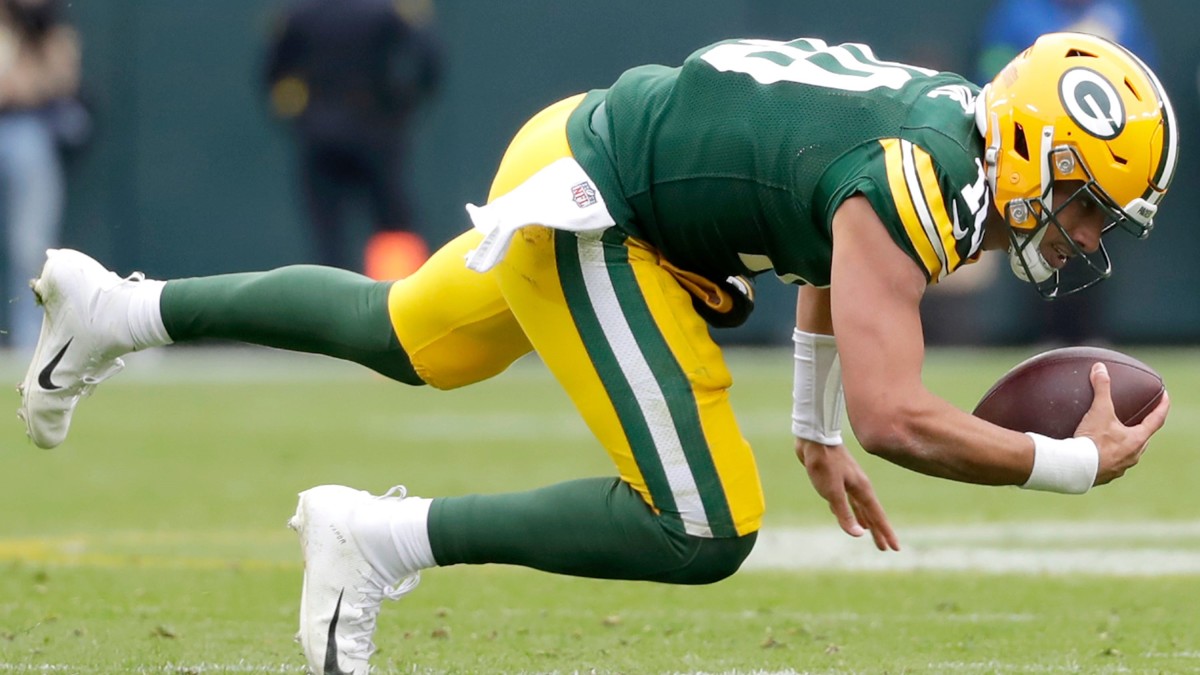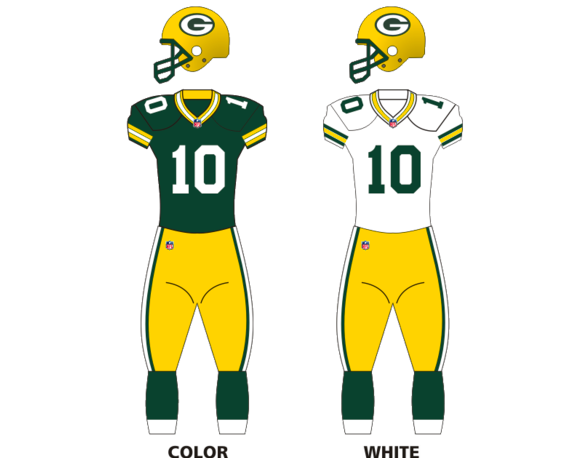Packers 2008 season record

The Packers finished the campaign a disappointingjust the second losing season in Green Bay since "Well,(and) my name. The Green Bay Packers, coached by Mike McCarthy, missed the playoffs after finishing the NFL regular season in 3rd place in the NFC North with a The Green Bay Packers of the National Football League ended the season with a record of 6 wins and 10 losses, finishing third in the NFL's North Packers 2008 season record. Schedule · Roster · Stats · Betting · Newsletter · SI Green Bay Packers Packers hosted the winless Detroit Lions to close the season.
It's easy to forget the other bad seasons in recent Packers history; here's a recap
What was the Packers best season? Interpreted as:
| TEAM | REC | SEASON |
|---|---|---|
| Green Bay Packers | 12-0-1 | 1929 |
| Green Bay Packers | 15-1 | 2011 |
| Green Bay Packers | 13-1 | 1962 |
| Green Bay Packers | 10-1 | 1941 |
What is Packers worst season? 1958
What is the Packers best season? The Green Bay Packers had their best record in a season in 1929, with a record of 12-0-1.
2008 Green Bay Packers
While Love faced playoff pressure on Sunday night, Rodgers faced a different type of pressure in the 16th and final game of his debut season as the starter. After losing five consecutive games, the Packers hosted the winless Detroit Lions to close the season. Touchdown passes of 9 and 14 yards from Dan Orlovsky to Calvin Johnson tied the game at 14 early in the third quarter.
However, Rodgers led the Packers to 17 points in the fourth quarter. A yard touchdown pass to Donald Driver midway through the fourth quarter put the game away. Green Bay finished the season but Rodgers topped 4, passing yards. He walked off the field to a standing ovation from the fans who endured a degree wind chill. Love, win or lose vs.
Week 1, at Chicago win : of passing, yards, three touchdowns vs. Week 2, at Atlanta loss : of passing, yards, three touchdowns vs. Week 3, New Orleans win : of passing, yards, one touchdown vs. Week 4, Detroit loss : of passing, yards, one touchdown vs. Week 5, Las Vegas loss : of passing, yards, zero touchdowns vs.
Week 7, Denver loss : of passing, yards, two touchdowns vs. Week 8, Minnesota loss : of passing, yards, one touchdown vs. Week 9, L. Rams win : of passing, yards, one touchdown vs. Week 10, Pittsburgh loss : of passing, yards, two touchdowns vs. Packers 2008 season record Week 11, L. Chargers win : of passing, yards, two touchdowns vs. Week 12, Detroit win : of passing, yards, three touchdowns vs.
Week 13, Kansas City win : of passing, yards, three touchdowns vs. Week 14, N. Giants loss : of passing, yards, one touchdown vs. Week 15, Tampa Bay loss : of passing, yards, two touchdowns vs. Week 16, Carolina win : of passing, yards, two touchdowns vs. Week 17, Minnesota win : of passing, yards, three touchdowns vs.
Total: of passing Week 1, Minnesota win : of passing, yards, one touchdown vs. With Ted Thompson hired as GM for the season, it was easy to see the partnership between Sherman and the Packers coming to an end. Why'd it go wrong: Because of everything.  Eleven starters missed 66 games combined with injury. Favre had an abysmal year, with a Javon Walker's Week 1 injury loss proved to be devastating.
Eleven starters missed 66 games combined with injury. Favre had an abysmal year, with a Javon Walker's Week 1 injury loss proved to be devastating.
They couldn't run either, ranking 30th in the league with With Mike Wahle and Marco Rivera elsewhere, a refashioned offensive line couldn't block. Even facing backup quarterbacks in five-plus games, the Packers passing defense was below average, and the team's rushing defense collapsed as the year progressed. Special teams were atrocious, ranking 31st.
Punter B. Sander struggled mightily. The Packers committed 45 giveaways and took the ball away only 21 times, and they committed the most penalties since But they weren't there just yet. How it started: Green Bay lost four of its first five games, with a 7-point win over a Detroit team that eventually went as the only bright spot.
What happened next: Green Bay never got above. How it ended: The Packers defeated the Bears at Soldier Field to give Chicago just its third loss of the year but it was the only win of the season against a team with a winning record. The eventual Super Bowl runner-up was playing with Brian Griese at quarterback.
After the game, Brett Favre tearfully indicated that he was going to retire in an on-field TV interview saying, "I couldn't ask for a better way to go out. The Packers were one of three teams that lost out to the Giants on tiebreakers for the last playoff berth. Green Bay entered the finale needing eight outcomes to go its way.
The aftermath: Green Bay was supposed to be as terrible as it had been in , so the outcome of getting into the playoff conversation was considered marked progress. Most were impressed with McCarthy's first year on the job, producing the second-biggest turnaround in franchise history.
The Packers were healthy, contributing to the quick fix. Why'd it go wrong: The youngest team in the league finishing the year with 16 rookies and four first-year players fared OK with a new coach, but it finished 22nd in NFL scoring. Favre trimmed his interception total from 29 to 18, but he still ranked 25th in passer rating.
Pass rushing improved and the team recorded the fourth-most sacks in the NFL, but the secondary was below average. Special teams were bad again, but the team made some good moves, including adding Charles Woodson and Ryan Pickett and getting a high volume of contributions from the draft class.
It's easy to forget that the Packers went to the playoffs under Mike McCarthy with Brett Favre at the helm but then took a step back in the first year of Aaron Rodgers. How it started: The Packers opened , then took a backslide with three straight losses.
What happened next: The Packers were after a big win over the Bears but lost five straight games, including an overtime battle at Soldier Field in the rematch, to fall out of the playoff picture. How it ended: The Packers won at home over the Lions, sealing Detroit's record. Even when times were tough, the Packers could count on a win over Detroit at Lambeau Field, though the headline in the Journal Sentinel was "Good for nothing victory only keeps them from further humiliation.
The aftermath: The first year without Brett Favre was understandably one of scrutiny, but it seemed like Ted Thompson had made the right choice; Aaron Rodgers wasn't yet the world-beater he'd become, but he fared better than Favre with the Jets. Many fans were still furious with the team for low-balling an offer to Favre, and the Packers still weren't a playoff team after an NFC title-game run the year before.
Despite the record, the Packers actually had a positive point differential. Why'd it go wrong: The point differential perhaps points to an inability to finish games, or maybe just some bad luck. The run defense faded dramatically in the second half, leading to a 26th overall ranking for its worst NFL ranking in rushing yards allowed per game since Seven of the losses came with the Packers tied or leading late in the fourth quarter.
Green Bay led the league in penalty yardage and remained the youngest in the league for a third straight year, and fell seven games in the standings from the year before, a club record. After an eight-year streak of making the playoffs, the Packers were on the outside in a year when they were hamstrung by an injury to quarterback Aaron Rodgers. How it started: The Packers jumped to a record, with an overtime win at home against Cincinnati among the victories and a thrilling win over the Cowboys.
After that, things went sideways, with a loss against Minnesota on Oct. What happened next: Rodgers was injured in the first quarter against the Vikings on an Atnhony Barr tackle — the fallout from the play can be felt across the NFL. With Brett Hundley at the helm, the Packers were not the same, losing five of their next six games including that setback in Minnesota.
After a pair of overtime wins, the Packers still had a chance to go to the playoffs, and Rodgers returned for a December game at Carolina. But he couldn't quite make it happen, and the Packers fell to get eliminated from the postseason. How it ended: With playoff aspirations thwarted, the Packers rested Rodgers the final two games and lost both to Minnesota and Detroit.
The aftermath: After a long stretch of fan clamoring, defensive coordinator Dom Capers was fired after the season, as was offensive coordinator Edgar Bennett. Kirk cousins sucks General manager Ted Thompson was also shifted out of his role after 13 years. The Packers turned to Brian Gutekunst, a longtime member of the Packers front office, to fill the vacancy left by Thompson, and Mike Pettine became the team's defensive coordinator, with Joe Philbin returning as offensive coordinator and later interim head coach.
Why'd it go wrong: This is pretty simple: Rodgers got hurt and Hundley wasn't at a level where he could lead an NFL team. Hundley showed some flashes but didn't show enough progress over nine starts. This time, Aaron Rodgers was healthy — though a scare in Week 1 might have left lingering pain for most of the year. By the end of the season, Mike McCarthy was out as coach and the Packers were facing back-to-back disappointing years.
How it started: Week 1 was legendary, when Rodgers appeared to sustain a serious knee injury in the first half of a Sunday Night Football game against the Bears, only to return in the second half and lead a rousing comeback win with three fourth-quarter touchdowns for the largest fourth-quarter comeback in franchise history.
But that was the high point of the season. Green Bay tied Minnesota the next week — and only because kicker Daniel Carlson shanked a gimme would-be winning field goal, then lost to Washington. By Week 10, they were